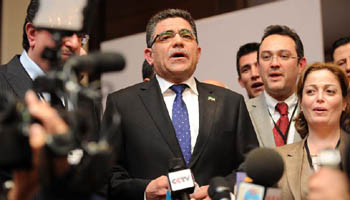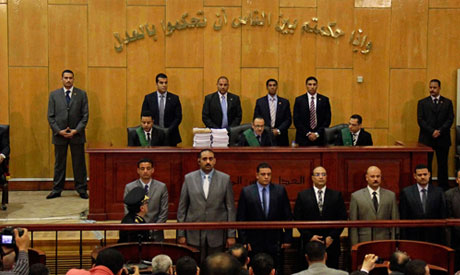 |
| Moazz Alkhatib |
Last week, the coalition chose Islamist-leaning technocrat Ghassan Hitto as a provisional prime minister to form a government. Hitto, whose cabinet is supposed to govern rebel-held areas currently ruled by hundreds of brigades and emerging warlords, was backed by the Muslim Brotherhood and coalition Secretary General Mustafa Sabbagh, who has strong links with Qatar. Alkhatib's position was weakened considerably by this choice of Hitto, along with a moderate wing of the revolution. Winners was the Salafists.
The rise of Salafists as the most effective fighting force, and their recent gains on the ground, have contributed to the coalition adopting a more hardline stance in recent weeks, rejecting dialogue with Assad except under strict conditions and ignoring promises to include more women and minorities.
"Basically Qatar and the Brotherhood forced Alkhatib out. In Alkhatib they had a figure who was gaining popularity inside Syria but he acted too independently for their taste," said Fawaz Tello, an independent opposition campaigner. They brought in Hitto. The position of Alkhatib as leader became untenable."
The appointment of Hitto prompted nine people to suspend their membership in the 62-member body, saying that promises to reform the coalition and respect consensus have been discarded.
Earlier this year, Alkhatib floated an initiative for the opposition to talk to Assad's administration about a political transition, but said the Damascus government did not respond.


.jpg)





 The headquarters of the Muslim Brotherhood in the Moqattam quarter of Cairo was stormed last Saturday by protesters against the rule of the Brotherhood. Several people got wounded. Egypt Independent reports that 15 people have been arrested (Photo Al-Masry al-Youm).
The headquarters of the Muslim Brotherhood in the Moqattam quarter of Cairo was stormed last Saturday by protesters against the rule of the Brotherhood. Several people got wounded. Egypt Independent reports that 15 people have been arrested (Photo Al-Masry al-Youm).



